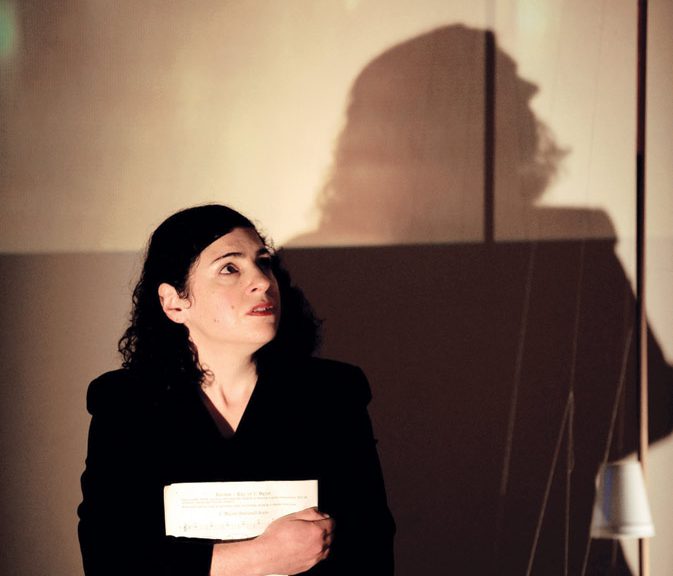Angela Costi
 Angela Costi has four poetry collections: Dinted Halos (Hit&Miss Publications, 2003), Prayers for the Wicked (Floodtide Audio and Text, 2005), Honey and Salt (Five Islands Press, 2007) and Lost in Mid-Verse (Owl Publishing, 2014). Her full-length play, Shimmer, has been remounted at several South Australian secondary colleges, 2016-17.
Angela Costi has four poetry collections: Dinted Halos (Hit&Miss Publications, 2003), Prayers for the Wicked (Floodtide Audio and Text, 2005), Honey and Salt (Five Islands Press, 2007) and Lost in Mid-Verse (Owl Publishing, 2014). Her full-length play, Shimmer, has been remounted at several South Australian secondary colleges, 2016-17.
Her poetry, essays and reviews have been published in Australia and overseas, including Hecate, Southerly, LINQ, Meanjin, Tattoo Highway, Alternative Law Journal and Peril. In 2009-10, with funding from the Australia Council for the Arts, she travelled to Japan to work on an international collaboration involving her poetry and the Stringraphy Ensemble. Her essay about this collaboration, and performance text, A Nest of Cinnamon, are published in Cordite, 2009 and 2013.
The Weed Eaters
Flower beds, veggie patches, nature strips, paved courtyards
you are all under attack, the weeds have arrived in droves
deep-rooting themselves in your clay-based soil
they pretend friendship but you know they are here to compete.
I search for my tools of decapitation and with my trusty glove
begin the ritual of tearing them out, they may sting, they may weep,
they may resist the tug, but I have no sympathy for their resilience
despite their appeal to my heritage of peasant foraging and eating.
Baba with his weak knees and ailing joints continues the ritual
of picking them selectively from his yard of green excess,
with his large plastic bag, seductive swing in his grip,
each nettle, thistle, dandelion, creeper and clover are his.
He offers me their contents as the world’s source of wisdom
but regrets with a ragged look not knowing how to cook them like
‘your mother’. I stare at them and can’t see the scripture
or verse of Cyprus yet promise to keep them safe in my fridge.
At night, I can hear her robed in her silence opening the fridge.
I know what she’s up to, feeding her hunger for nostalgia,
she has them cooking in my non-stick pan, then slides them
onto two plates, squeezes the lemon liberally, drizzles the oil.
Paused in the hallway, I almost return to my bed, but
her bitterness seeps in and I long for the horta of childhood.
Mama is waiting. We eat as one, ravenous for what was.
The Good Citizens of Melbourne
Trams are the good citizens of Melbourne… There are nearly 700 trams on Melbourne streets. Looking after them takes a lot of men: cleaners, overhaulers, tradesmen of all sorts…
—Citizen Tram, a 1960s film by the Melbourne and Metropolitan Tramways Board
Sitting next to my young mother is Deena, her sister
with eyes men fall into.
She’s older and focused on
getting them to work,
making sure they don’t miss
stop 20. Facing her
but almost falling into her lap is Thelema, her cousin
with arms and legs that don’t stop talking:
did you hear about Effie? Yes, you know her…
she’s the one with the glass eye,
the one that works the zipper machine…
She’s fifteen, younger than me – she looks fifty.
She has a proxenia,
he’s at least thirty,
her parents want to get rid of her
because of the zeemia
with the gelato shop boy.
With a slight lean of her head
away from the window
Deena intervenes:
Effie shouldn’t be forced,
it’s criminal, her parents are vavaree!
Then my mother, who is a mere fifteen herself
says: Maybe she’s better off,
who wants to be sklavee
for the rich man
and his needle and thread machine?
Deena, Thelema, Young Mum are
a trio of handbags, lunch boxes,
orange, apricot, lavender skirts,
shirts with wide white collars
showing neck bones, smiles
of modest pink lipstick,
earrings that clasp the ear tight,
knees protruding with pent up
bursts of freedom as they speak
in a flurry of Cypriot-Greek
on the busy tram
heading to a factory
where young women
make fashion
for others.
The tram
halts
before stop 20,
the Driver
turns his mouth into a fist:
on this tram we speak English
if you keep up with your gibberish
you can get off at the next stop!
The language hovers over their heads
like a thought cloud of orexee,
darkly spiralling,
sending them down into a well
where there are no windows to see
the plum trees, the magpies, the milk bars…
Each day they caught that tram
they renewed their vow
of silence.